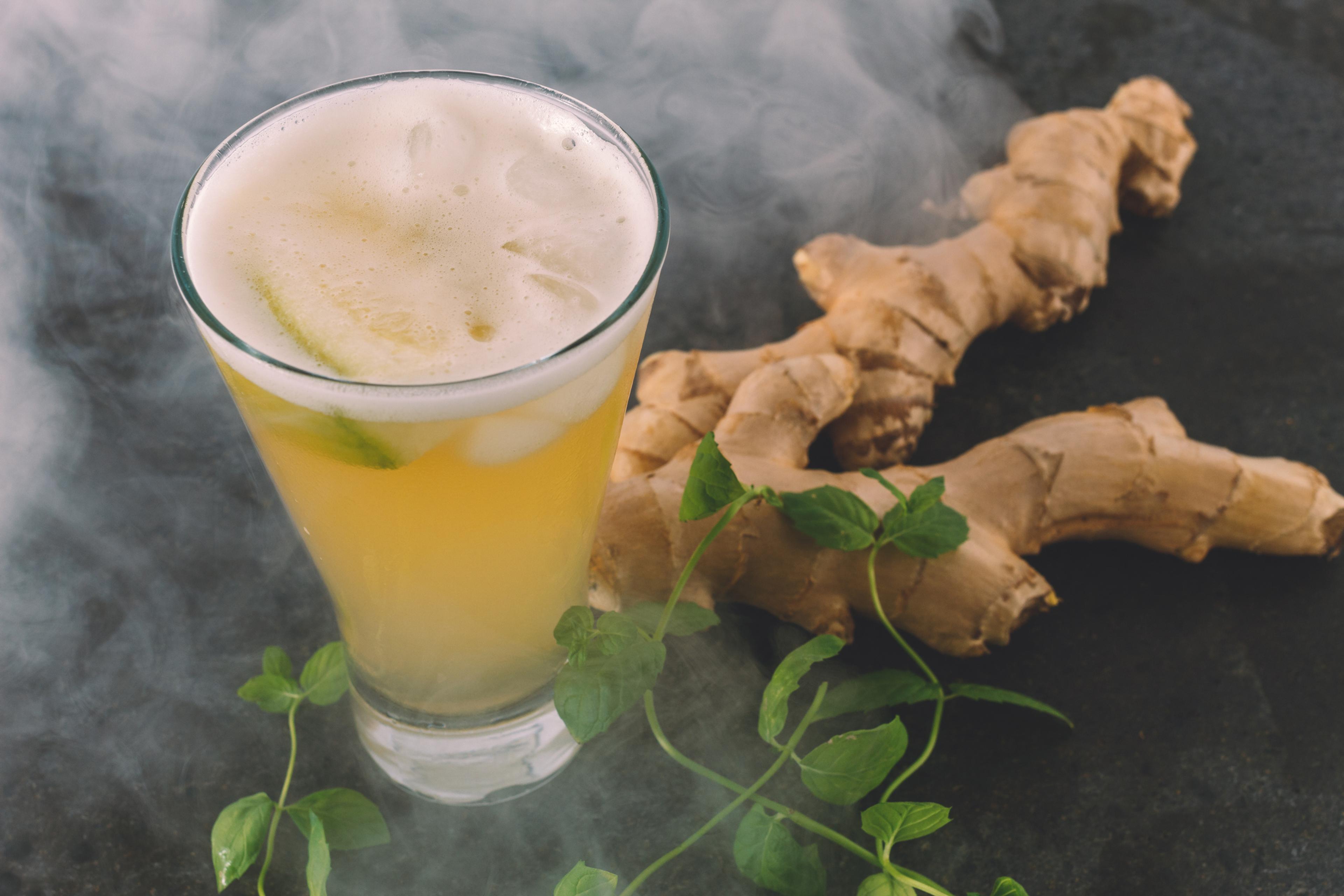Does Ginger Beer Have Alcohol?
A Healthier Michigan
| 3 min read

When reading a packaging label with the word “beer” on it, it’s fair to wonder if that product contains alcohol.
Most commercially available and mass marketed ginger beers are simply ginger drinks or fermented ginger drinks, minus booze. However, alcoholic ginger beers are available, so it’s understandable to be a little confused while beverage shopping.
The process of fermentation required to make ginger beer means this drink used to regularly contain alcohol. According to Science in School’s writings on ginger beer, modern ginger beer is usually made with added flavors and carbonated with pressurized carbon dioxide.
Nowadays, ginger beers that contain alcohol are marketed as alcoholic ginger beers. Some ginger beers may have slight alcoholic content under 0.5% allowing them to be marketed without an alcoholic label or classification, according to the FDA. Ginger beer is often used as mixers in cocktails, but it is not, on its own, an alcoholic beverage.
Let’s dive into ginger beer, its ingredients and its nutritional value (or lack thereof) to help dial down some of that confusion the next time you’re at the supermarket or convenience store.
What is in ginger beer?
It depends on if the drink is a true ginger “beer,” or a more common soft drink referred to as ginger beer that is nonalcoholic and similar to some sodas. Ginger beer may include ginger, water, sugar, cream of tartar, lemon peel or juice, citric acid and possibly yeast, flavorings, coloring, and added sugar. Generally, any ginger beers with yeast for fermenting are bottled before the fermentation process is complete, resulting in a mild level of alcohol, according to Encyclopedia Britannica.
Modern ginger beers are distinguished from ginger ales in that they are brewed with and include natural ginger, while most ginger ales use carbonated water with the essence of ginger to get the ginger taste and spice.
Is ginger beer good for you?
The benefits of ginger beer vary based on the ginger used in the beverage. Ginger beer brewed or made with natural, real ginger is more likely to carry over the positive benefits of ginger than ginger-flavored or infused ginger beers, according to a study in Fermentation and Bioactive Metabolites 2.0. There are many studies on the effects and benefits of ginger, but not on ginger beer specifically.
According to a study in the International Journal of Current Microbiology and Applied Sciences, benefits or healthy properties or uses of ginger have been seen to include:
- antimicrobial properties
- antioxidant properties
- anti-inflammatory properties
- analgesic properties
- digestive aid properties
- immune stimulating properties
Make sure to read the label to be sure about alcohol content and be aware of added sugars that may be in some ginger beers and ginger beverages.
Can you drink ginger beer while pregnant?
Ginger beers that are brewed or fermented may contain alcohol even if under the 0.5% ABV limit for nonalcoholic beverages. Remember that no amount of alcohol is safe during pregnancy. Some ginger beers truly have zero alcohol, and these are safe to drink. To be sure, always read the labels and ingredients carefully. If you have any questions, contact your care team.





